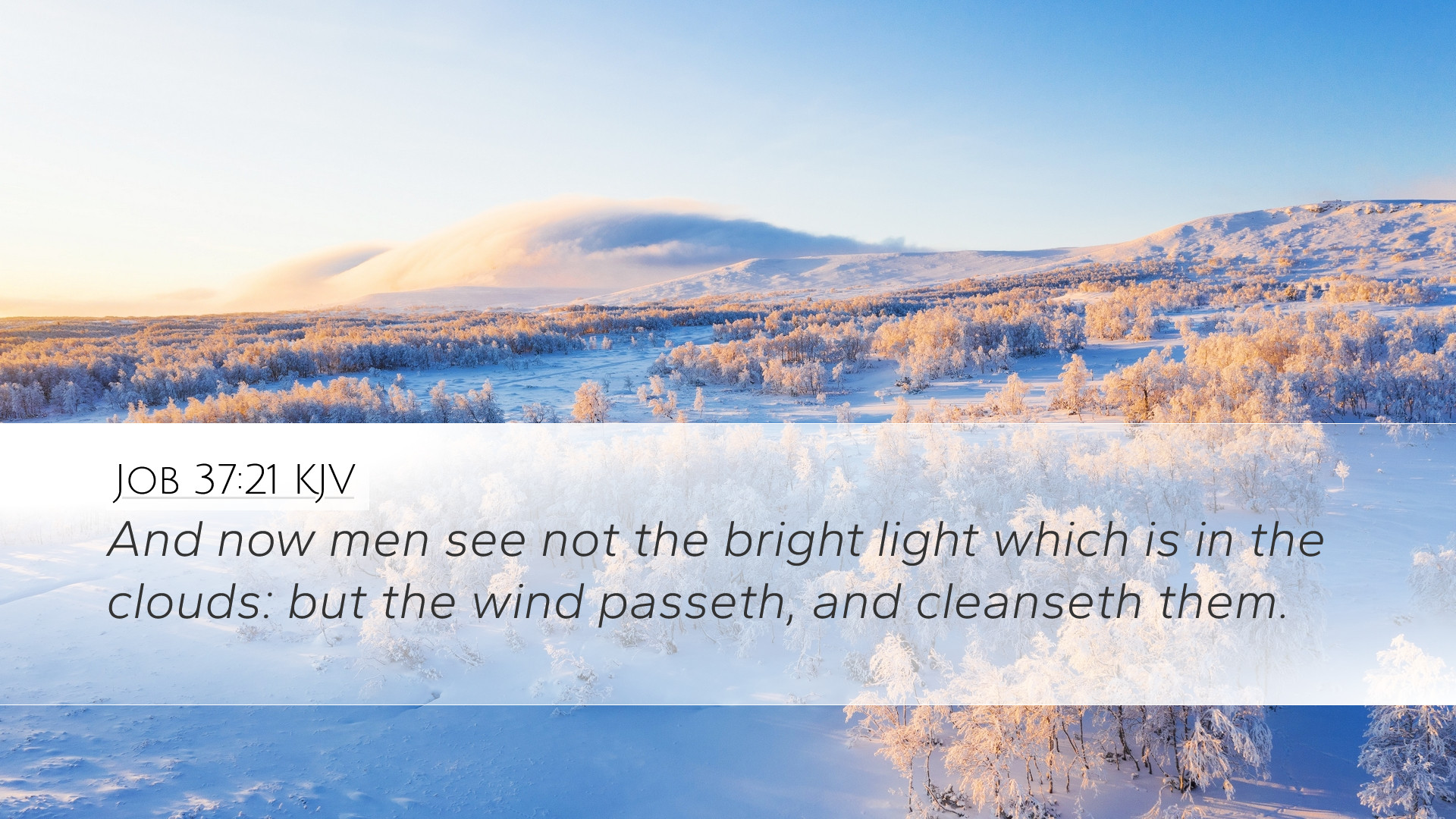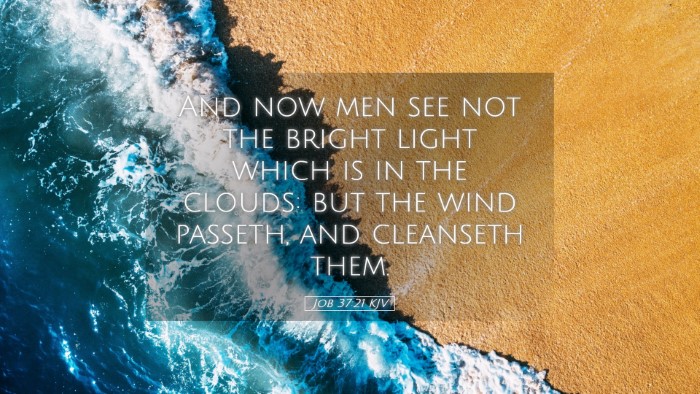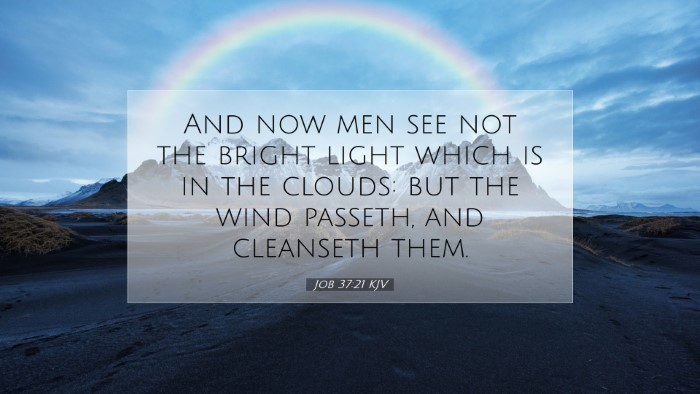Old Testament
Genesis Exodus Leviticus Numbers Deuteronomy Joshua Judges Ruth 1 Samuel 2 Samuel 1 Kings 2 Kings 1 Chronicles 2 Chronicles Ezra Nehemiah Esther Job Psalms Proverbs Ecclesiastes Song of Solomon Isaiah Jeremiah Lamentations Ezekiel Daniel Hosea Joel Amos Obadiah Jonah Micah Nahum Habakkuk Zephaniah Haggai Zechariah MalachiJob 37:21
Job 37:21 KJV
And now men see not the bright light which is in the clouds: but the wind passeth, and cleanseth them.
Job 37:21 Bible Commentary
Commentary on Job 37:21
Job 37:21 states, "And now men see not the bright light which is in the clouds: but the wind passeth, and cleanseth them." This verse is nestled in a discourse by Elihu, who offers wisdom regarding the nature of God as it relates to creation and the processes within the natural world. Below, we summarize insights from prominent public domain commentators to elucidate the depth and significance of this verse.
Contextual Analysis
In this chapter, Elihu speaks of God's majesty exhibited through the natural phenomena, likening it to the way the whirlwind reveals God’s power and presence. The bright light symbolizes divine illumination and understanding which is obscured by the clouds, representing the difficulties and trials in life that shroud our perception of God's grace and providence.
Insights from Matthew Henry
Matthew Henry notes that the "bright light" refers to the divine truth and knowledge that exists but is often veiled from human observation due to worldly distractions. He emphasizes that while people might not perceive the clarity of God’s light in their lives, it is the passage of time (represented by the wind) which purges confusion and brings a clearer understanding later on. Henry elaborates that this illustrates God's sovereign control over nature and encourages believers to trust in divine timing.
Insights from Albert Barnes
Albert Barnes provides a more elaborative perspective, suggesting that the "bright light" signifies not only the presence of God but also the enlightenment that comes through faith. He observes that the obscurity depicted by clouds serves as a metaphor for human struggles, where one feels disconnected from God’s goodness. Barnes posits that the wind’s cleansing symbolizes the purifying work of God in the believer's life, a necessary process to reveal the clarity and brilliance of God’s truth.
Insights from Adam Clarke
Adam Clarke points out that the reference to men not seeing the light serves as a reminder of humanity's limited perception of divine matters. He further explains the role of the wind as a force that contributes to the maintenance of creation, serving both as a metaphor for trials and a literal means through which clouds (representing life's troubles) are driven away. Clarke underscores the necessity of trials in revealing the true nature of God, encouraging piety and dependency on divine strength.
Theological Implications
- God's Sovereignty: This verse encapsulates the theme of God's sovereignty over nature. Despite the present difficulties, believers are called to recognize and affirm God's greater plan and purpose.
- Human Taxonomy: It highlights humanity's struggle with understanding divine intentions amidst confusion, illustrating the importance of faith and persistence in seeking God’s truth.
- Divine Illumination: The concept of divine light being obscured serves as a poignant reminder that spiritual enlightenment often requires patience and the cleansing that comes from life's turbulent experiences.
Practical Application
As pastors, students, and theologians study this verse, it becomes evident that it calls for both self-reflection and an understanding of God’s character.
- Encouragement During Trials: Pastors can encourage congregants to trust in God’s presence and purpose even when life’s difficulties seem overwhelming and God feels distant.
- Teaching on Perseverance: Students and scholars may explore how this verse invites believers to wait patiently for God’s revelation and trust in His timing amidst their struggles.
- Prayer and Dependency: Practitioners are reminded of the importance of prayer and dependency on God, recognizing that the winds of life can be both challenging and purifying.
Conclusion
Job 37:21 serves as a profound verse encapsulating themes of divine majesty, human limitation, and the need for perseverance. The interplay between light, clouds, and wind enriches theological discourse and offers a comforting reminder of God's active role in our lives. In navigating trials, believers can hold onto the hope of divine clarity and illumination that eventually comes, encouraging a deeper relationship with God.


